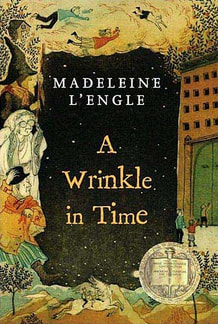|
Some people are just amazing. Einstein and Shakespeare, for instance, stand out as exceptional. Joan of Arc led the armies of France as a teenager. In the film Amadeus, Mozart seems to compose concertos and symphonies with little to no effort, while his rival composer Salieri painstakingly works to produce material which can never measure up. It appears some people are chosen for great things, gifted with special abilities, while others are not. And that’s reflected in the stories we tell.

Let’s take a look at A Wrinkle in Time by Madeleine L’Engle. In this story, boy-genius Charles Wallace Murry speaks with a vocabulary well-beyond his years, probably on account of his reading the dictionary for fun, and at five years old he quickly grasps the concept of travel through time and space. But he’s more than just your average child prodigy. As his mother says, "Charles Wallace is what he is. Different. New." You might say, unique. The boy knows things about people without being told. He can feel around in other people’s minds, and he can usually tell whether a stranger is friendly or sinister. His gifts go far beyond what you would expect.
With everything going for him, you’d think Charles Wallace would be the story’s main character. Wouldn’t you as a reader like to spend some time in the head of a genius and see things from his perspective? But instead L’Engle chooses to present the book to us through the eyes of Meg, Charles Wallace’s older sister. Meg is best known for not being able to control her temper. She gets in plenty of trouble at school and is stubbornly protective of her brother. She certainly doesn’t feel gifted. Rather, she believes she’s "doing everything wrong." Meg can’t seem to keep from lashing out, and the fact that people are gossiping about her missing father doesn’t help matters.
Comments
|
David Raphael HilderJoin the conversation as we explore the best there is in fantasy, sci-fi, adventure, and of course, the classics Archives
December 2020
Categories
All
|

